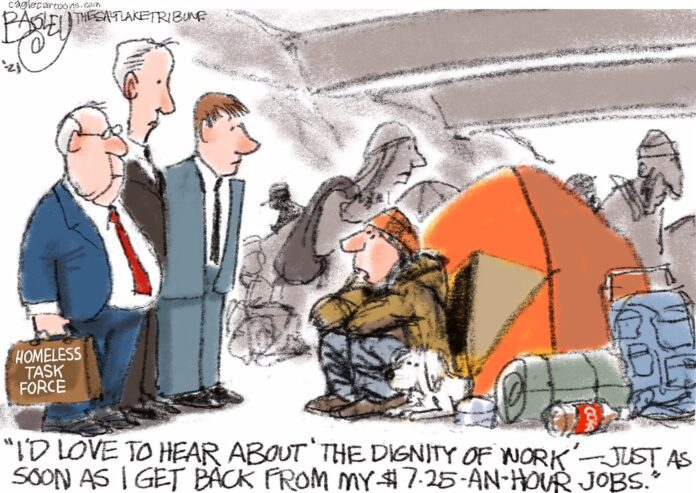The next time state legislators swear they’re devoted to protecting your rights, fact-check them.
Chances are, they voted this session to curtail your constitutional authority to force change when the statehouse’s Powers-That-Be refuse to act.
You may have missed it, but in the session’s frenzied, final weeks, the Republican supermajority overwhelmingly voted to make it tougher than ever to get state questions on the ballot.
And Gov. Kevin Stitt quickly signed the new hurdles into law.
Why would these self-proclaimed defenders of individual liberty and protectors from government overreach do such a thing?
It’s all about p-o-w-e-r.
Too cynical? No, it’s the political Golden Rule: He who has the gold rules. It’s Realpolitik.
The truth is, antipathy toward People Power has been building over the nearly two decades of GOP control at NE 23rd and Lincoln Blvd.
It began in earnest after voters approved criminal justice reform [SQs 780 and 781] in 2016 and gave thumbs up to medical marijuana [State Question 788] in 2018. And it was doused with accelerant when voters in 2020 embraced Medicaid expansion [SQ 802] – something legislative leadership fiercely opposed for political reasons. Think: ObamaCare.
Ever since, lawmakers have tinkered with ways to curtail the initiative petition authority granted to rank-and-file Sooners when the state Constitution was written more than a century ago.
Most such efforts were unsuccessful. This year was different.
First, SB 518, which adds hurdles to an already arduous signature-gathering process, won lopsided approval in both legislative chambers – 72-25 in the House, 38-8 in the Senate. All yes votes came from Republicans; 20 of 25 votes against from Democrats.
Then, HB 1105, which extends the petition challenge periods from 10 to 90 days, sailed through the Senate 38-7 and House 72-21. Again, all yes votes were from Rs.
So what changed? Why, suddenly, was it a legislative imperative this year to restrict the people’s initiative petition powers?
Two things: First, a legal battle to block signature-gathering for SQ 832 failed – meaning voters soon could decide whether to mandate a gradual increase in the minimum wage to $15 an hour.
Who mounted the court challenge? Two of the statehouse’s most powerful special interests, the State Chamber and the Oklahoma Farm Bureau. Should petitioners secure the necessary 93,000 valid signatures by the mid-July deadline, extending the challenge period could derail any hopes of getting it on the Nov. 5 general election ballot.
Why is that important to opponents? Because presidential elections historically generate the largest voter turnout – which could increase the number of workaday Oklahomans who just might think it’s a dandy idea to raise the wage that’s been stuck at $7.25 an hour for 15 years.
Consider the raw numbers: An estimated 320,000 hourly wage earners would receive a pay raise should SQ 832 reach the ballot and win voter approval. That also would help nearly 200,000 Oklahoma children living in minimum wage-earning householders.
Second, anti-abortion zealots in the Legislature fear what could happen if voters are given the opportunity to decide whether to enshrine reproductive rights in the state Constitution as neighboring Kansas, among others, already have.
Red, blue or purple, Oklahomans of all political stripes should be irate they are being stripped of their petition power by lawmakers who think they always know best when it comes to public policy.







